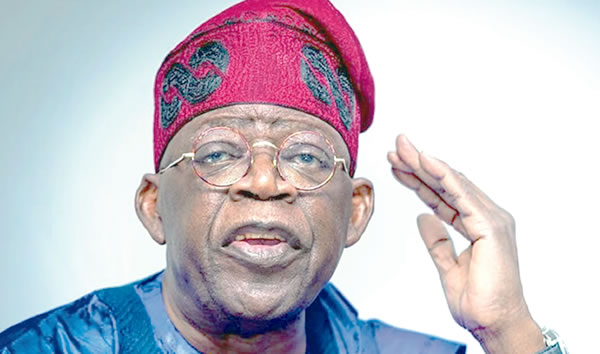
As Nigeria joins the rest of the world to celebrate this year’s World Food Day, the Minister of State for Agriculture and Food Security, Senator Aliyu Abdullahi has announced that President Bola Tinubu is implementing policies that will guarantee Nigerians’ right to food.
Senator Abdullahi stated this while addressing journalists as part of the activities to mark this year’s World Food Day at the Ministry’s headquarters, Abuja.

The Minister noted that the continued conflicts and displacement, economic shocks and instability, inflation, and rising food prices have had a devastating impact on global food supply.
He however said that several efforts have been made by the present administration to address the current food shortages occasioned by these challenges. One of the efforts according to him is the release of 102,000 metric tons of Maize, Millet, and Garri in addition to other food commodities from the National Food Reserve to Nigerians.
“Building on the momentum to end hunger and promote sustainable agriculture, the present administration under President Bola Ahmed Tinubu is implementing lots of policies, programmes, and initiatives to ensure the Right to Food for a better life and better future in Nigeria by placing food security as a top-most national priority in its Renewed Hope Agenda.
“This year, the Nigerian government has ordered for immediate release of more than 102,000 metric tons of Maize, Millet, and Garri in addition to other food commodities from the National Food Reserve to Nigerians as a temporary response to the nation’s rising cost of food.
“The administration has also resorted to importing some food commodities as an interim measure to augment food shortages.
Furthermore, Abdullahi stated that T he government is prioritizing mechanized farming to accelerate agricultural production and promote economic growth.
He said that the President Tinubu-led administration has outlined plans to cultivate 500,000 hectares of farmlands across the country to grow maize, rice, wheat, millet, and other staple crops to boost food supply and affordability.
The strategy according to him involves collaboration with state governments to stem inflation and enhance food security in the country.
“Economic opportunities are being enhanced for inclusive participation of small and marginal farmers, women, and youths to create jobs, reduce poverty, and boost economic growth.
“It is the resolve of the present administration to develop the agricultural sector towards the attainment of the objectives of the Sustainable Development Goals (SDGs) especially those of zero hunger and to improve agriculture and rural productivity.
“Agriculture remains a potent tool to fight hunger, poverty and unemployment. It is against this backdrop that we wish to reiterate our commitment to reducing these menace and ensure prosperity for all Nigerians”, the Minister noted.
The Minister, however, called on governments at all levels, international organisations, private sector, civil society organizations, and the public to work together to bring food crisis and hunger to the top of the global agenda and invest in short, medium, and long-term solutions that will provide everyone with enough food to eat.
“Let us advocate for policies and initiatives that address hunger, food waste, and sustainable farming practices at the local, national, and international levels. Let us be mindful of those facing hunger and malnutrition and take urgent steps to reduce food loss”, Abdullahi added.
The Minister informed that the objectives of World Food Day are to raise awareness about global food security issues, promote global cooperation and action to address hunger and malnutrition, support sustainable agriculture and food systems, initiate policies to ensure food accessibility, availability, and affordability and inspire collective action to achieve Zero Hunger.
ALSO READ THESE TOP STORIES FROM NIGERIAN TRIBUNE








